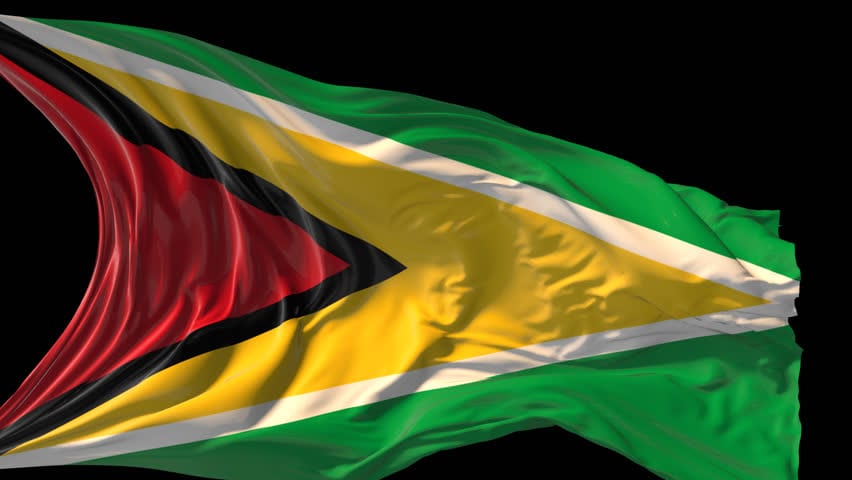
Guyana at a Turning Point: Oil and Security
Spare a moment of thought for a small, poor country on the northern coast of South America: Guyana. This country, full of promise, is facing a slate of challenges, some self-inflicted, and some due to the unprecedented challenge in global markets.
Five years ago, Guyana moved to the center of the oil world when a consortium led by ExxonMobil announced the first of a series of major offshore oil discoveries in its waters. Put together, these finds indicated that oil output could swiftly rise to nearly 700 thousand barrels per day by 2030. At such a level, it would rank ahead of OPEC countries like Ecuador, Equatorial Guinea, or Gabon. And its low population means that, on a per-capita basis, Guyana will become as important – and wealthy – as Gulf-state kingdoms like Kuwait.
In October 2018, I wrote a report for ASP about Guyana, saying that this small country was given an opportunity to build sustainable security by these oil finds. It could use its newfound wealth to create a society that would be equitable, use the wealth to protect its unusually pristine environment, and show a model to the Caribbean and South American nations for how to lead.
On December 20, 2019, oil started flowing from Guyana’s offshore platforms to markets. But the government had not set up the rules of its sovereign wealth fund to ensure equitable resource sharing. There were few coherent plans for how to prevent “Dutch Disease” from afflicting the currency. The ambitious Green State Development Plan was little more than the words on the paper.
Since then, homemade and global problems have compounded the challenges. The twin global crises of an oil price collapse and the Coronavirus have severely impacted global oil demand and prices. A long-awaited election was marred by cheating and ballot-stuffing.
Even so, Guyana is changing from the oil. Low prices will stunt that growth, but because Guyana was so poor, any revenues are more than what came before. As I wrote in 2018, money cannot solve every problem, but it can solve many.
The pathway forward is uncertain and treacherous. The “Resource Curse” is a noted phenomenon. While no one should expect Guyana to become Norway overnight, the difference in outcomes between a society looking like Kuwait and the corruption and poverty of Equatorial Guinea is stark. Perhaps most dangerous is the example lying just across its Western Border: Venezuela.
Guyana’s Geopolitical Position
The most important story in the Caribbean Basin is not Guyana – it is what will happen in Venezuela. While the competition between Maduro and Guaido for power in Venezuela has not resulted in open conflict, it is a result of the long-term resource curse of Venezuela. For a country blessed by abundant natural resources, including the largest proven reserves of oil in the world, Venezuela has failed to provide security, stability, or prosperity to its people. It is the poster-child for the resource curse that Guyana must avoid.
Ironically, Venezuela may also be responsible for the economic underdevelopment of Guyana. For decades, Venezuela has claimed rights to Guyana’s Esequibo region, including vast offshore areas. While few give credence to Venezuela’s claims, the uncertainty has probably dissuaded outside investment. As the oil finds were verified, there were several times in which Venezuelan naval vessels harassed private oil exploration ships. In 2018 Guyana sued Venezuela over its claim to Esequibo region and the maritime rights that go along with it in the International Court of Justice. Hearings were due to begin in The Hague on March 23, 2020, but have been postponed indefinitely due to Coronavirus concerns. Even so, most independent observers give little credit to Venezuela’s claims, and expect a decision to favor Guyana.
A stable, prosperous Guyana would be a powerful counterpoint to the collapse of Venezuela. It would show that oil wealth in South America does not necessarily lead to corruption, hyperinflation, and failed governments. Guyana, as a bridge between the Caribbean and South America, can show the region how to develop.
The United States has offered support to Guyana in its claims against Venezuela, with Secretary Pompeo pointedly including areas within Venezuela’s claim, saying: “We wish the people of Guyana, from the Corentyne to the Pakaraimas, from the Takutu to the Amakura, and across the entire “Land of Many Waters,” a happy Independence Day.”
In 2018, I wrote an oped showing that Guyana can be an important point of leverage against Venezuela. However, it is not worth sacrificing the democratic legitimacy of Guyana. While the United States should and does support the country of Guyana, the government of Guyana shouldn’t confuse that with supporting the ruling party against the opposition. Guyana’s long-term wealth, growth, and prosperity depend on governmental legitimacy.
The United States has overlooked its Caribbean neighbors for too long. Energy is a valuable way to build closer ties and shared prosperity. Whereas America’s global competitors, like China and Russia are bringing infrastructure investment or military aid, only the United States can use our businesses to bring prosperity and growth. Although some have said ExxonMobil is one of the few companies that pursues its own foreign policy, American leaders should know that how our businesses act reflect on America’s position in the world.
The U.S. needs Guyana to succeed, under the preconditions of economic growth, equitable wealth distribution, sustainable development, and democratic legitimacy. Too often, the “Resource Curse” has brought the opposite in each of these four measures. The money that oil wealth brings can support these goals: money doesn’t solve every problem, but it can certainly help.





